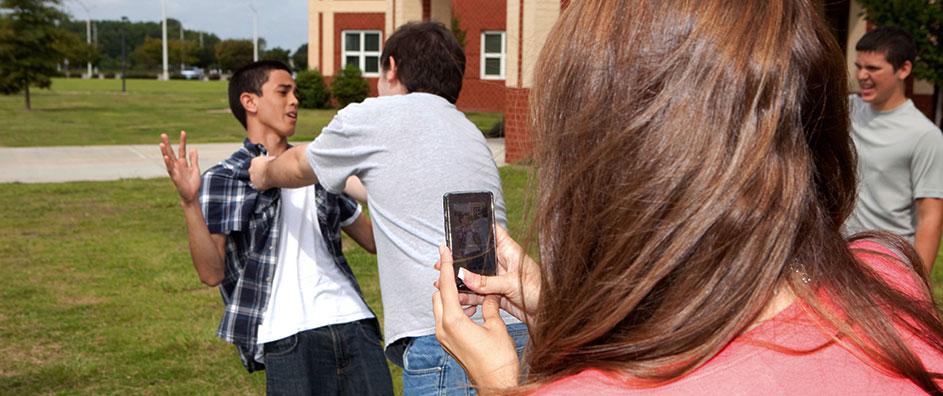Violence, in its myriad forms, permeates the fabric of society, influencing not only the immediate wellbeing of individuals but also the broader sociocultural milieu. Addresses to violence often illuminate profound psychosocial and philosophical inquiries, inviting reflection on the innate potential for both good and ill embedded within humanity. The Bahá’í teachings, rooted in principles of unity, justice, and moral transformation, offer a comprehensive framework for understanding and curtailing violence—manifested in both children and adults. This exploration delves into the essence of Bahá’í principles in addressing violence and outlines effective strategies for its cessation.
At the core of Bahá’í teachings lies the affirmation of the nobility of human nature. This perspective posits that every individual is endowed with the capacity for compassion, reason, and moral discernment. However, the degradation of this inherent potential often arises from societal ills, environmental influences, and ignorance. Violence, therefore, can be understood not merely as a behavioral defect but as a symptom of deeper societal dysfunctions. The Bahá’í faith advocates for holistic education and the cultivation of virtues as primary antidotes to aggression and discord.
Fundamental to curtailing violence is the recognition that education plays an indispensable role. Bahá’í teachings emphasize the necessity of an education that transcends mere academic achievement to encompass moral and spiritual development. This educative approach is vital, particularly in the formative years of childhood. It is through fostering environments that prioritize empathy, cooperation, and conflict resolution skills that we may instil in children the understanding that violence is an unacceptable means of expression.
Furthermore, the Bahá’í framework advocates for the establishment of strong, nurturing familial structures. Healthy familial relationships serve as a bulwark against violence. Children raised in environments characterized by love, respect, and open communication are less likely to manifest violent tendencies. The family, as the fundamental unit of society, requires a transformation towards exemplifying Bahá’í ideals—recognizing the importance of unity and mutual support in fostering non-violent methods of interaction.
Extending beyond familial engagement, community involvement is paramount in addressing violence at a broader level. The Bahá’í community actively promotes the principles of service, collaboration, and cohesion amongst its members. Engaging in collective actions aimed at social betterment fosters an awareness of shared responsibility in mitigating violence. When individuals recognize that their actions ripple through the communal space, a collective aversion to violent behavior can develop. Nonviolent conflict resolution programs within communities serve as effective platforms for individuals to explore alternative approaches to disputes, further solidifying a culture of peace.
Interestingly, the notion of justice within Bahá’í teachings underscores a critical component in countering violence. Justice is not simply retribution, but rather involves a transformative process that seeks to rehabilitate offenders and integrate them back into society. Implementing restorative justice frameworks can help transcend cycles of violence, inviting individuals to engage in reflection and restoration rather than punishment. Through this lens, the possibility of redemption—both for victims and perpetrators—becomes a tangible reality, reinforcing the belief in human capacity for change.
Moreover, the teachings exhort individuals to engage with their spiritual and moral aspirations actively. The invocation of virtues such as patience, humility, and forgiveness becomes paramount in addressing violent inclinations. Individuals must embrace personal transformation as a cornerstone of creating non-violent societies. The recognition that peace begins within each person can ignite a paradigm shift in interpersonal dynamics. Herein lies the profound power of self-reflection and spiritual practice, which bolster individual resilience against resentment and hostility.
The Bahá’í approach also acknowledges the necessity for systemic change. The perpetuation of violence is often exacerbated by societal structures that marginalize certain groups and perpetuate inequality. Thus, the work of Bahá’ís extends into social advocacy, striving for the elimination of prejudice and the promotion of equality among all people. Addressing the root causes of violence—social inequities, economic disparities, and systemic oppression—requires comprehensive strategies that engage diverse stakeholders. By fostering a climate of understanding and addressing injustice, constructive pathways to peace emerge.
Despite the daunting nature of the challenge at hand, the Bahá’í teachings offer a hopeful perspective rooted in the potential for individual and collective transformation. The cultivation of a culture that embraces non-violence necessitates an integrated approach, weaving through education, familial support, community engagement, and systemic reform. It calls for a robust commitment to upholding the intrinsic value of each human being, paving the way for a transformative understanding of relationships.
In conclusion, the cessation of violence is not merely the absence of aggression but the manifestation of a holistic commitment to fostering peace on individual, familial, communal, and societal levels. The teachings of the Bahá’í Faith, through their emphasis on unity, education, and moral development, offer profound insights and strategies necessary for dismantling the chains of violence in both children and adults. As society grapples with this multifaceted issue, it is essential to recognize the interconnectedness of our actions and beliefs. Through collective efforts and unwavering dedication to the principles of justice and compassion, a path towards a peaceful existence is not only conceivable but achievable.
